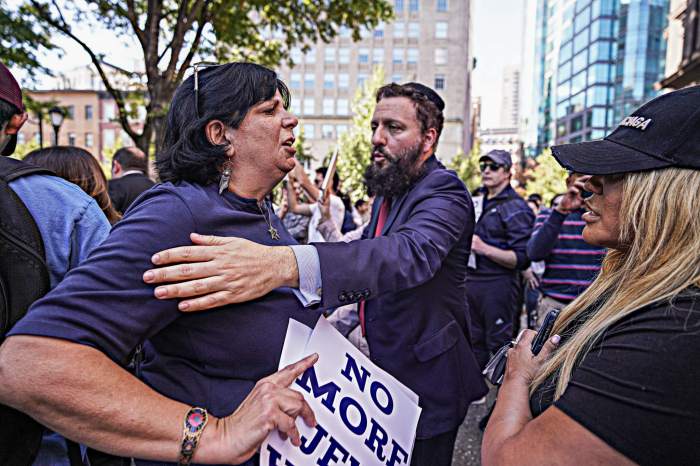The vote on Brett Kavanaugh that the U.S. Senate is poised to take this weekend has become much more than a vote on the confirmation of a Supreme Court justice.
It also is a referendum — on the treatment of women at the hands of men; on the politics of personal destruction as practiced by both major parties; and on our nation’s elite, the way its members live their lives and the double standard by which they often are judged.
The Senate vote will do nothing to solve these issues, which will continue to roil the nation. All it will do is give Kavanaugh a lifetime appointment to the nation’s highest bench, or reject him.
Regardless of one’s stance on Kavanaugh, the process of getting to this point has been horrible — for Kavanaugh and Christine Blasey Ford, who accused him of teenage sexual misconduct, and for the country and the court itself.
The rushed timetable dictated by Republicans, their refusal to release many documents from Kavanaugh’s time in the Bush administration, the role played by Democratic Sen. Dianne Feinstein in the late-game release of Ford’s letter, the restricted time granted senators to question Kavanaugh and Ford, the limited FBI probe of charges by Ford and other women — all of it infected the process so thoroughly that a yes vote would put a damaged Kavanaugh on a damaged court in a country even more polarized than before, if that’s possible.
Majority wants Kavanaugh rejected
For many women, confirming Kavanaugh would feel like a loss, a rejection of what happened to them or other women they know, a dismissal of their trauma. Many men would share that pain. But that acute emotion blurs an important achievement. The chronic mistreatment of women has been thrust into America’s consciousness. Searing stories have poured forth from those famous and those not. There is more awareness and, in some quarters, more sensitivity than before. Small salve for the moment, perhaps, but a portent of the reckoning this nation must embrace for women to be treated truly as equal with men.
Of bittersweet comfort, too, is the truth that Senate approval of Kavanaugh would not reflect the majority of the nation. That’s clear from polls that find more people want him rejected than confirmed.
We might never have corroboration about what happened in that room between Kavanaugh and Ford in 1982, but we don’t need any to make a determination about his character. Kavanaugh lied often about his high school life. This is not a judgment on what he did, but on his refusal to be honest about it. This followed other self-inflicted blows to his credibility earlier in the process when he gave a series of vague, misleading or untruthful answers — about his personal financial debt and, from his days as a White House operative, about his knowledge of the hacking of records belonging to Senate Judiciary Democrats, his role in devising legal justifications for torture, and his involvement in judicial nominations. And the lashing anger he showed on the day he and Ford were questioned exposed him as every bit an extreme partisan, which will undercut his judicial work for years to come.
A Supreme Court justice must be beyond reproach. The president can find another nominee to deliver a reliably conservative vote without the baggage that Brett Kavanaugh brings.

















